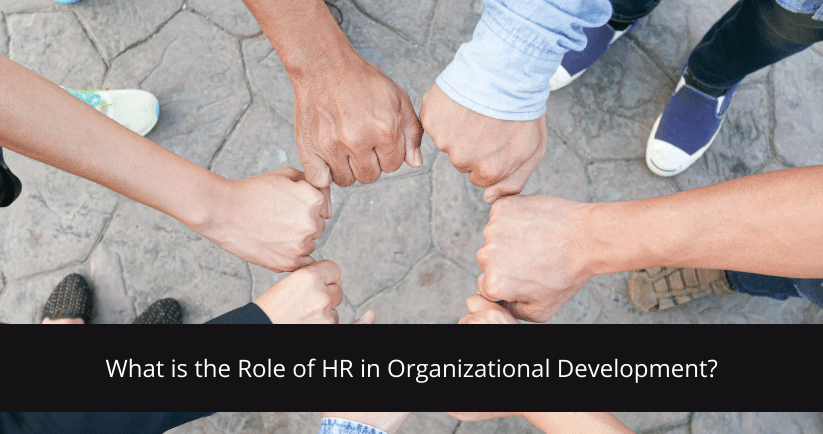
What is the Role of HR in Organizational Development?
Table of Contents

Reading Time: 3 minutes
In this fast-paced world, with things changing every minute, it demands continuous realignment in order to survive. The same applies to the HR industry. With the latest remote working came up the challenge of managing a remote workforce.
Being an HR is never an easy job. Since human resources play a vital role in business performance and employee experience, organisation development can be said to rely on the HR department.
If executed in the right manner, HR could be the gem in organizational development and innovation.
But what exactly is organisational development? How is it important for an enterprise like yours? Follow this;
What is Organisational development?
OD or organisational development can be defined as a strategy to revamp internal communication and relation. The development generally involves changes for the entity to improve the effectiveness and outcome of any effort put in.
Primary activities under development could be training/learning management, communication, IT, culture, and similar. The overall purpose is to yield better operations and promote productivity at the base.
Importance of Organisational development
Timely developments at a firm help equip you with better resources for upcoming challenges and talent requirements. It helps foster better relations and healthy work culture.
Organisational development also brings your attention towards parameters like branding and structure. Such dedicated activities can be extremely worthwhile when it comes to making the mark on today’s date.
So, how could an HR contribute to an organisational change (or say development)?
Also Read:
Role of HR in Organisational Development and Innovation
- Managing Compliances
- Talent Acquisition
- Planning and Structure
- Implementation and Development
1. Managing Compliances
Legal trouble like false data or failing to be compliant at payroll can cause hurdles. Business owners and managers understand this very well. Data security and compliance management are very important for any HR department.
Here many companies rely on HR managers to abide by legalities and audits. Manual HR can be a bit difficult and unpredictable in causing errors. Cloud-based HRMS software can help you with online data backup and managing compliance easily.
2. Talent acquisition
An HR can actively contribute to management through their recruitment skills. Using efficient recruitment software for talent hiring or effective recruitment management can help you easily reach a potential candidate base.
HR experts can plan a foolproof retention strategy to keep their top performers for long. Staffing is not just about hiring the best, but also retaining your current force. This helps HR maintain a good employee turnover and good work culture.
3. Planning and structure
Structure and evaluate best performing values and mission for your company based on stakeholders like internal customers (employees) and clients. Recommend a working plan to the management.
Keep on framing and re-assessing these statements with time and demand. Strategic planning can be extremely useful in future operations and tackles. HR strategies prevent you from any unexpected situations and make you future-ready.
4. Implementation and development
Now it’s time to implement your plans and resources to the road map. Evaluate your resources for training and development. Design your learning templates that are directly associated with company goals and mission. Train staff to be the expert in their areas of focus.
Make this a habit. Keep track of your employees and ensure regular learning based on requirements. Ease your learning with an automated LMS system. These were some of the best ways an HR manager contributes to organisational development. Continuous learning and improvisation here can be extremely value-adding.
Pocket HRMS is a new-age HR software with integrable business solutions like training management system, payroll software, employee experience, timesheet management, self-service, etc. Contact us to avail your FREE trial.
Should have queries? Write to us at sales@pockethrms.com






